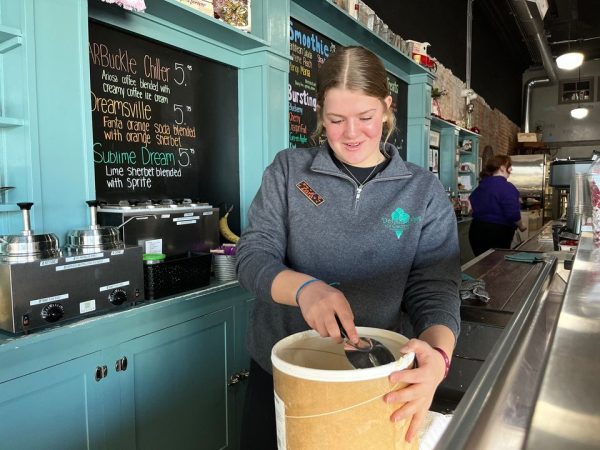Happy Holidays from around the world!
Kwanzaa
One of the seven principles of Kwanzaa is umoja meaning unity, which is pictured by two intersecting ovals.
In 1966, the holiday Kwanzaa was created by an African-American political activist by the name of Maulana Karenga. Kwanzaa is celebrated Dec. 26-Jan. 1 by people of African decent. Each of the seven days of Kwanzaa are devoted to one of seven principles, known as Nguzo Saba, of which the holiday is based. These principles include: umoja meaning unity, pictured by two intersecting ovals; kujichagulia meaning self determination; ujima meaning collective work and responsibility; ujamaa meaning cooperative economics; nia meaning purpose; kuumba meaning creativity; and imani meaning faith.
Throughout these seven days, on each evening celebrants come together to share food and drinks with their family and friends, and they perform a candle lighting ritual. The candle holster is called kinara and includes seven candles, mishumaa, in memory of African ancestors. Each of the candles represents one of the seven values. The first candle is black and is lit of the day of unity while the others alternate back and forth between red and green. The red candle imitates the blood of the people who have struggled and the green candle for past victories, all life, and hope for the future. On the last day of Kwanzaa, called Imana, all the candles will burn.
Each night, hosts adorn their tables with symbols of Kwanzaa which include: mkeka (straw mat) representing African American heritage in traditional African culture; kikomba (communal cup) which is placed on the mat to symbolize the unity of all African people, an elder typically fills this cup with wine, juice, or spirits, and will pass it around for everyone to drink; mazao (tropical fruits and nuts) are laid to represent the yield of the first harvest; vibunzi or muhindi (ears of corn) one for each child living in the home, which represents new life. On each day, zawadi (gifts) that represent the theme of the day are exchanged among family. These gifts are meant to be educational and uplifting.
The main feast, karamu, is held on the last evening of Kwanzaa (Dec. 31). During this feast, a poem called Black Family Pledge, written by African-American poet and author, Maya Angelou is recited by celebrants. Each stanza is read by a different family member, but the pledge at the end is recited in unison. This poem remembers the suffering of African-American people and renews their commitment to each other.

Haley McKain 2018
Co-Editor in Chief
A little bit about me
I cry all the time. Not always in a bad way or anything, but when I’m mad, sad, and especially...



